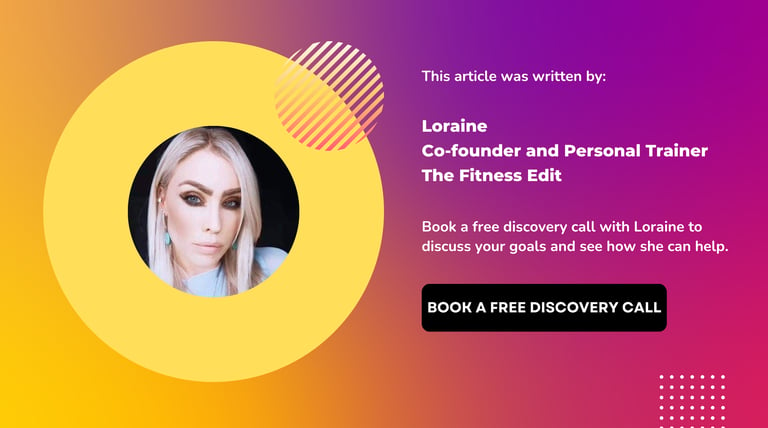20 Health Facts That Will Transform Your Wellness Journey
Discover 20 game-changing health facts backed by science that debunk fitness myths and revolutionize your approach to nutrition, exercise, and weight loss. Expert insights included.
Loraine B
7/21/20258 min read


Let's be honest. The fitness world is drowning in weight loss myths. Every week brings a new miracle diet, revolutionary workout, or "secret" that promises to transform your body overnight. But what if I told you that some of the most powerful health truths are hiding in plain sight, often contradicting everything you've been told?
Today, we're cutting through the noise with 20 science-backed health facts that will fundamentally change how you think about fitness and nutrition. These aren't trendy tips or quick fixes. They're evidence-based insights that can genuinely transform your health journey.
The Nutrition Revolution: What Science Really Says
1. BMI Is a Terrible Health Indicator
Here's a shocking truth that might ruffle some feathers: BMI is wildly inaccurate for most people. This outdated measurement system, developed in the 1830s by a Belgian mathematician (not a doctor), fails to account for muscle mass, bone density, or body composition.
Consider this fascinating fact: according to BMI standards, most professional rugby players would be classified as obese. The Rock, with his impressive physique, technically falls into the obese category. That's because muscle weighs significantly more than fat, but BMI treats all weight equally.
"BMI was never intended to be used as an individual diagnostic tool," explains Dr. Linda Bacon, a respected health researcher. "It's a population-level statistical tool that has been misapplied to individual health assessment."
2. Everyone Should Embrace High-Protein Diets
Science has consistently shown that a high‑protein diet is the most important macronutrient strategy for body composition, satiety, and metabolic health.. Clinical trials of 6–12 months reported that a high-protein diet provides weight-loss effects and can prevent weight regain after weight loss, with no adverse effects on health in healthy adults.
The magic happens because protein requires more energy to digest (called the thermic effect), keeps you fuller for longer, and preserves muscle mass during weight loss. Research indicates that increased protein intake significantly prevents muscle mass decline in adults with overweight or obesity aiming for weight loss.
Fun fact: your body can't store excess protein like it can with carbohydrates and fats. Any excess protein gets converted to glucose or excreted, making it nearly impossible to gain fat from protein alone.
3. Calories Still Rule the Kingdom
Despite what Instagram influencers might tell you, overall calorie intake matters 100% more for fat loss than "eating clean." You can eat pizza, ice cream, and burgers and still lose weight if you maintain a caloric deficit.
This doesn't mean nutrition quality doesn't matter (more on that later), but it does mean you don't need to eliminate entire food groups to see results. The famous "Twinkie Diet" experiment proved this point when a nutrition professor lost 27 pounds in 10 weeks eating primarily junk food, simply by maintaining a caloric deficit.
4. The Great Peanut Butter Myth
Time to burst a popular bubble: peanut butter is not a high-protein snack. With only about 8 grams of protein per 2-tablespoon serving (but 16 grams of fat), it's actually a fat source masquerading as a protein powerhouse.
For comparison, the same calorie amount of chicken breast contains about 25 grams of protein. If you're relying on peanut butter for your protein goals, you might want to reconsider your strategy.
5. Quality vs Quantity: The Perfect Balance
Here's where things get interesting. The quantity of your food affects how you look, while the quality affects how you feel. This distinction is crucial for long-term success.
You might lose weight eating 1,500 calories of processed foods, but you'll likely feel tired, moody, and hungry. Conversely, 1,500 calories of whole foods will leave you energized, satisfied, and mentally sharp. The goal isn't choosing one over the other but understanding how both play essential roles.
Exercise: Your Natural Pharmacy
6. Cardio Isn't Essential for Fat Loss
Let's address the elephant in the room: you don't need hours of cardio to lose fat. Fat loss primarily occurs through creating a caloric deficit, which can be achieved entirely through diet modifications.
However, cardiovascular exercise provides incredible benefits for brain health, heart function, and mood regulation; whether guided by an online coach or on your own.. It's not necessary for fat loss, but it's phenomenal for overall wellness.
7. Exercise Is Nature's Antidepressant
When you exercise, something magical happens in your brain. Dopamine, noradrenaline, and serotonin are the three major monoamine neurotransmitters that are known to be modulated by exercise. These neurochemicals flood your system, creating what researchers call a natural antidepressant effect.
The research is remarkable: a bout of exercise has been shown to increase dopamine and serotonin in the blood, with studies linking these changes to improved mental health outcomes. It's like having a pharmacy in your own body.
"Regular exercise is one of the most powerful interventions we have for mental health," notes Dr. John Ratey, author of "Spark: The Revolutionary New Science of Exercise and the Brain." "It's like taking a little bit of Prozac and a little bit of Ritalin."
8. Sitting Really Is the New Smoking
This isn't just a catchy phrase. Research shows that prolonged sitting increases your risk of cardiovascular disease, diabetes, and early death, even if you exercise regularly. The human body is designed for movement, not prolonged static positions.
The solution is simple: break up long periods of sitting with movement. Set a timer for every 30-45 minutes and take a brief walk, do some stretches, or simply stand for a few minutes.
These 20 health facts aren't just interesting trivia; they're practical tools for transforming your health journey. The fitness industry profits from confusion and complexity, but the truth is elegantly simple: focus on protein, move regularly, prioritize sleep, manage stress, and be patient with the process.
You don't need to implement all these strategies at once. Pick the ones that excite you most and start there. Your future self will thank you for taking the first step today.
The path to better health isn't about finding the perfect diet or workout plan. It's about understanding how your body actually works and making informed decisions based on science, not marketing hype. Now you have the knowledge. The question is: what will you do with it?
Further reading on TheFitnessEdit.co.za: 'Nutrition Tips for Weight Loss After 30.'
You can also read about 'Calorie Goals Explained.'
Kickstart your weight loss in 7 days with this simple, FREE guide to stop the guesswork, boost your energy, and build healthy habits that fit your busy life.


The Weight Loss Reality Check
9. Fast Weight Loss Backfires Spectacularly
Super fast weight loss might look impressive on social media, but science tells a different story. Rapid weight loss leads to significant muscle loss and dramatically increases the likelihood of regaining weight.
When you lose weight too quickly, your body activates survival mechanisms, slowing your metabolism and increasing hunger hormones. This is why 95% of people who lose weight quickly regain it within five years.
10. Genetics Aren't Your Destiny
Here's an empowering truth: 99% of people can overcome unfavorable genetics through epigenetics. Your behaviors literally alter how your genes express themselves.
This field of study shows that lifestyle factors like diet, exercise, stress management, and sleep quality can "turn on" beneficial genes while "turning off" problematic ones. You're not a victim of your genetic code; you're the author of your genetic expression.
Sleep and Recovery: The Hidden Game-Changers
11. Sleep Deprivation Sabotages Fat Loss
Lack of sleep increases hunger hormones (ghrelin) and decreases satiety hormones (leptin), making fat loss significantly more challenging. When you're sleep-deprived, your body craves high-calorie, high-carb foods as a quick energy source.
Studies show that people who sleep less than 6 hours per night have a 30% higher risk of obesity compared to those who sleep 7-9 hours.
12. Sun Exposure: Nature's Ultimate Supplement
Healthy sun exposure (without burning) acts as nature's #1 supplement for better sleep, mood, energy, skin health, and mental well-being. Sunlight triggers vitamin D production, regulates circadian rhythms, and releases mood-boosting chemicals.
The key is balance. About 15-20 minutes of midday sun exposure for fair-skinned individuals (longer for darker skin) provides benefits without increasing cancer risk.
The Psychology of Health
13. Your Self-Identity Drives Everything
Your self-identity creates default actions. If you constantly call yourself "lazy" or use other negative labels, you're programming your brain to act accordingly. This isn't motivational fluff; it's backed by neuroscience research on identity-based behavior change.
Instead of saying "I'm trying to lose weight," try "I'm someone who makes healthy choices." This subtle shift creates powerful psychological changes that influence your daily decisions.
14. Bad Days Are Completely Normal
If you had a bad day with food or exercise, it's 100% normal. Perfectionism is the enemy of progress. Research on habit formation shows that occasional lapses don't derail long-term success as long as you return to your routine quickly.
The most successful people aren’t those who never mess up; they’re those who build sustainable habits that let them bounce back fastest from setbacks..
Surprising Food Facts
15. Fruit Is Almost Impossible to Overeat
Despite fear-mongering about fruit sugar, it's nearly impossible to overconsume fruit in its whole form. The fiber, water, and nutrients in fruit create natural satiety signals that prevent overeating.
A large apple contains only about 100 calories and provides significant fiber, vitamins, and antioxidants. You'd have to eat about 10 apples to match the calories in a single donut, and good luck trying to eat that many apples in one sitting.
16. Vegetables Are Your Secret Weapon
Eating lots of vegetables is essential for health and helps keep you full on fewer calories. Vegetables are incredibly nutrient-dense while being calorie-sparse, making them perfect for weight management.
Here's a fun fact: you could eat 10 cups of spinach for the same calories as one small cookie. The spinach would provide massive amounts of vitamins, minerals, and fiber, while the cookie offers mainly sugar and fat.
17. Fake Meat Isn't the Health Hero You Think
Ultra-processed plant-based meats are often less healthy than real meat. These products typically contain high amounts of sodium, preservatives, and artificial ingredients to mimic meat's taste and texture.
While they might be better for the environment, they're not necessarily better for your health compared to minimally processed animal proteins.
Practical Implementation Strategies
18. Start Small, Think Big
The most successful health transformations begin with tiny, consistent changes rather than dramatic overhauls. Pick 2-3 strategies from this list that resonate most with your current situation.
For example, you might transform your health in just three months by increasing your protein intake, taking a 10‑minute walk after lunch, and going to bed 30 minutes earlier.
19. Focus on Systems, Not Goals
Instead of setting a goal like "lose 20 pounds," create systems like "eat protein at every meal" or "walk for 20 minutes daily." Goals are destinations; systems are the vehicles that get you there.
20. Consistency Trumps Perfection
The person who exercises 3 times per week for a year will achieve better results than someone who exercises 6 times per week for two months before burning out. Sustainable habits beat intense short-term efforts every time.




References
Clinical Evidence and Mechanisms of High-Protein Diet-Induced Weight Loss
Dietary Protein and Muscle Mass: Translating Science to Application and Health Benefit
Possible role of exercise therapy on depression: Effector neurotransmitters as key players
Bidirectional Association between Physical Activity and Dopamine Across Adulthood
The information provided in this blog post is intended solely for informational purposes. It is not meant to replace professional medical advice, diagnosis, or treatment. Consult health care providers for personalised medical advice and treatment options related to specific health concerns.
© 2026 Elevate Wellness Co. Pty Ltd. All rights reserved




